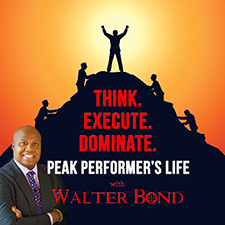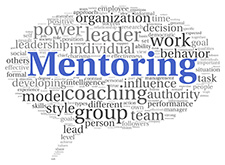 During the month of February, there is a lot of talk about love. But anyone who’s been in a relationship for a long period of time can tell you that there is a point where love becomes a choice. When the butterflies and honeymoon phases fade away, that’s where the work begins. And loving your job is no different.
During the month of February, there is a lot of talk about love. But anyone who’s been in a relationship for a long period of time can tell you that there is a point where love becomes a choice. When the butterflies and honeymoon phases fade away, that’s where the work begins. And loving your job is no different.
The idea of someone loving their job can seem like a far-fetched dream. But the good news is that it just requires a person to keep working at it. “You don’t have to quit,” encourages a Fast Company article. “It is possible to rekindle that old spark.” Here are three helpful tips to keep your love for your job alive, even on Mondays.
Make a List
Every job has positive aspects to it, even if they don’t immediately come to mind. Take a few minutes and list out the good things about your job. Do you have fun co-workers, bring home a paycheck, have health insurance, or enjoy your projects? If the answer is yes, write it down. What about a flexible schedule, holidays off, travel opportunities, or an up-to-date computer? Those are all positives too.
Once you have some items on your list, post it where you can easily see it. You can always add more to it whenever you discover another aspect of your job you love. Then, when you’re having a tough start to the week or just struggling with liking your job, you can read through the list and give your attitude a boost.
Discover What You Can Change
As a Forbes article about loving your job pointed out, “boredom is often at the root of unhappiness at work.” It’s up to you to discover what areas you’re dissatisfied or bored with, and then map out a way to make some changes. “Challenge yourself to look for one area that would give you more joy at work and then make it happen.” It could be as simple as rearranging, decluttering, and decorating your desk space. Or perhaps it might be training yourself to do one of your tasks more effectively. Another aspect of this is seeking out new responsibilities. Forbes recommends that you “keep your ear to the ground to get the scoop on positions opening up or emerging projects — even if they’re short-term. Then throw your name into the hat.”
Remember Your End Goal
In the day-to-day distractions, it’s easy to forget your bigger purpose. But think back to when you first took this job. Most likely you were excited, and that’s probably because the job was a step toward a goal. Whatever that goal was – money to buy a house, getting your foot in the door at a great company, learning more about an industry that interests you – try and remember it. You’re at your job for a reason, and while this particular stretch of your journey may not be your favorite, take joy in the fact that you’re at least working toward your goal.
No one wants to be in a job they hate. After all, if you’re going to spend the majority of your waking hours at work, life will be much more enjoyable if you love your job. And that’s not an unrealistic dream. “Loving work is not as much a pipe dream as winning the lottery – it’s something far easier to achieve,” the Inc. article explains. “Loving your job is a skill and a practice,” so all you have to do is work at it.
What tips do you have for enjoying your job? Let us know in the comments section below!
Movin’ On Up is brought to you by Express Employment Professionals.






